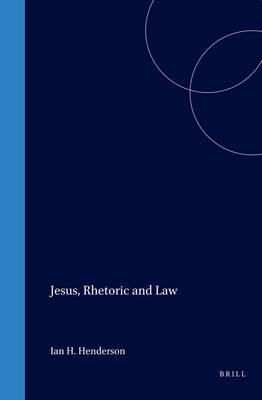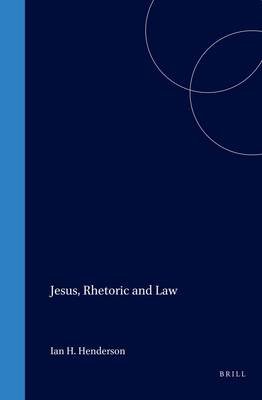
- Afhalen na 1 uur in een winkel met voorraad
- Gratis thuislevering in België vanaf € 30
- Ruim aanbod met 7 miljoen producten
- Afhalen na 1 uur in een winkel met voorraad
- Gratis thuislevering in België vanaf € 30
- Ruim aanbod met 7 miljoen producten
Zoeken
€ 435,45
+ 870 punten
Omschrijving
This study locates pre-gospel orality and gospel literacy within Greco-Roman rhetorical norms for education and performance. Heavy use of a few basic rhetorical conventions marks the gospel tradition as a marginal yet rhetorically competent attempt to create a Christian public.
The book identifies gnomic sayings as the thickest available sample of gospel rhetorics, an alternative to samples based on chreia and parable. Gnome-use is central throughout ancient rhetorical theory and practice. Gnome is therefore an especially good focus for comparative study, particularly of characterisation and legal topicality. This work establishes a credible model of interaction among the speech-habits of Jesus, those of early Christian oral tradition, and the innovative rhetorics of gospel and epistolary texts. The plurality of rhetorical-criticisms current in New Testament studies is also addressed.
The book identifies gnomic sayings as the thickest available sample of gospel rhetorics, an alternative to samples based on chreia and parable. Gnome-use is central throughout ancient rhetorical theory and practice. Gnome is therefore an especially good focus for comparative study, particularly of characterisation and legal topicality. This work establishes a credible model of interaction among the speech-habits of Jesus, those of early Christian oral tradition, and the innovative rhetorics of gospel and epistolary texts. The plurality of rhetorical-criticisms current in New Testament studies is also addressed.
Specificaties
Betrokkenen
- Auteur(s):
- Uitgeverij:
Inhoud
- Aantal bladzijden:
- 437
- Taal:
- Engels
- Reeks:
- Reeksnummer:
- nr. 20
Eigenschappen
- Productcode (EAN):
- 9789004103771
- Verschijningsdatum:
- 1/03/1996
- Uitvoering:
- Hardcover
- Formaat:
- Genaaid
- Afmetingen:
- 166 mm x 246 mm
- Gewicht:
- 911 g

Alleen bij Standaard Boekhandel
+ 870 punten op je klantenkaart van Standaard Boekhandel
Beoordelingen
We publiceren alleen reviews die voldoen aan de voorwaarden voor reviews. Bekijk onze voorwaarden voor reviews.








